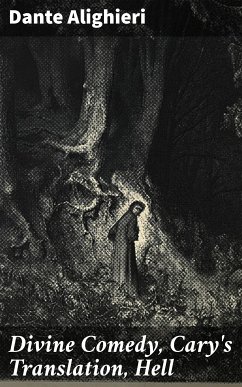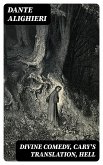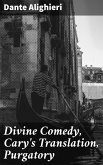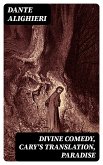Dante Alighieri's 'Divine Comedy, Cary's Translation, Hell' is a monumental work of literature, intricately weaving together rich allegory, vivid imagery, and profound philosophical reflections. The book is divided into three parts'ÄîHell, Purgatory, and Paradise'Äîyet this translation focuses specifically on the harrowing journey through the infernal realms. Dante employs a terza rima rhyme scheme that enhances the lyrical quality of his verse, while the use of first-person narration immerses readers in his allegorical pilgrimage toward redemption and divine love. The text offers a probing social critique of 14th-century Florence and beyond, as Dante encounters historical and mythological figures, each emblematic of moral and ethical dilemmas, thus establishing itself as a cornerstone of medieval literature. Dante Alighieri, a poet, philosopher, and political figure of his time, crafted 'Divine Comedy' during his exile, grappling with personal, civic, and spiritual turmoil. His breadth of knowledge in philosophy, theology, and the classical tradition reflects his deep engagement with the issues surrounding morality, justice, and the human condition. Dante's own experiences of exile and loss are intricately interwoven into this literary tapestry, creating not only a powerful aesthetic experience but also a deeply personal exploration of the soul's journey toward God. This translation, rendered by Henry Francis Cary, captures the rhythmic beauty of Dante'Äôs original Italian, making the work accessible to contemporary audiences while preserving its intricate nuances. 'Divine Comedy, Cary's Translation, Hell' is an essential read for those interested in classical literature, philosophy, and human spirituality. Whether for scholarly study or personal inspiration, Dante's timeless insights into the human experience resonate with readers across ages, inviting contemplation and introspection.
Dieser Download kann aus rechtlichen Gründen nur mit Rechnungsadresse in A, B, BG, CY, CZ, D, DK, EW, E, FIN, F, GR, H, IRL, I, LT, L, LR, M, NL, PL, P, R, S, SLO, SK ausgeliefert werden.









